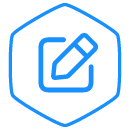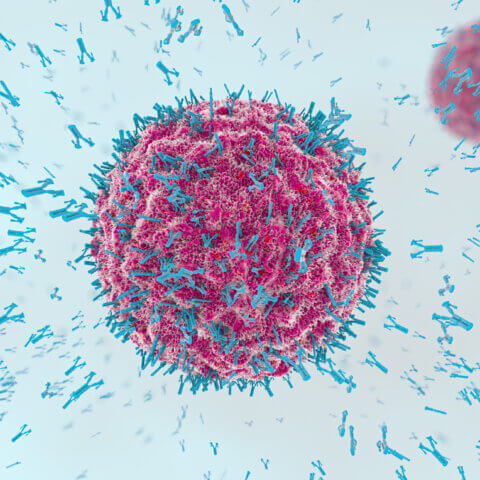Last Updated: October 9, 2024, 5 pm UTC
Drug development is a resource-intensive endeavor. Seeking input from the U.S. Food and Drug Administration throughout the journey can help optimize those resources and maximize the likelihood of regulatory approval. When preparing to submit a new drug application (NDA), a pre-NDA meeting with the FDA can be a critical step in ensuring the submission of a well-organized NDA that fits the expectations of agency reviewers.
Benefits of a pre-NDA meeting
The pre-NDA meeting is typically the last formal interaction with the FDA prior to NDA submission. This meeting is an opportunity to solicit comments and clarification from the FDA on the acceptability of:
- Key clinical data, including data that might become available for submission during NDA review
- Content of the integrated summary of safety (ISS) and the integrated summary of effectiveness (ISE) sections
- Chemistry, manufacturing, and controls (CMC) information, including stability data
Achieving alignment on these critical components of the NDA can help reduce the time needed to prepare the submission. The FDA may also provide insight into any outstanding issues that have been on their radar, which helps ensure there are no surprises when the NDA package is received. Clarifying the agency’s expectations reduces review time and minimizes post-submission information requests that can delay your timeline.
Preparing for the pre-NDA meeting
Timing
The pre-NDA meeting should generally occur no less than 60 days prior to NDA submission to allow for a meaningful response to FDA feedback. Some sponsors prefer to request a pre-NDA meeting before initiating NDA preparation, while others choose to start writing the marketing application and compiling their key messaging before requesting the meeting. Either of these approaches can be successfully executed with appropriate preparation.
Generally, we recommend requesting the pre-NDA meeting early to get guidance on preparing and organizing the ISS and ISE, as these are large documents that become the basis for subsequent summary documents. However, the optimal timing for submitting the pre-NDA meeting request is sponsor-and program-specific. A good rule of thumb is to ensure you have the data you would like to discuss in hand before submitting the request.
Pre-NDA briefing package
A briefing package must be submitted to the FDA 30 days prior to the pre-NDA meeting.
Typical Contents of Pre-NDA briefing package
- Proposed indication
- Summary of the data from completed pivotal trials
- Manufacturing information on the products used in the studies and the product intended for distribution
- Discussion on request for expedited programs (Priority Review, Accelerated Approval, Rolling Review)
- Proposed format of the NDA submission
- Timeline for submission
Potential topics for discussion
Pre-NDA meetings typically include a discussion of the format and content of the anticipated NDA — including the data presentation, the dataset structure, and the acceptability of data — and the projected date of submission.
Potential topics of the pre-NDA meeting may include:
- Questions about the formatting and organization of the ISS and ISE
- Requests for the FDA’s input on the clinical efficacy data and how that will translate into labeling to support the proposed indication
- Review of your plans to address any issues or follow through on previous advice from the agency
- Intentions to apply for expedited programs or request a rolling submission
- Preliminary discussions of risk management plans and post-marketing studies
- If real-world, late-breaking, or legacy data is expected to be incorporated into the NDA, a request for confirmation on how that data should be submitted
If you had previous interactions with the agency throughout the development program, it is advisable to review prior feedback and your response. Demonstrating you’ve listened to the agency and incorporated their guidance into your program and application can go a long way.
Ultimately, the pre-NDA meeting’s objectives are to achieve alignment on expectations and determine whether outstanding issues require additional data or studies that may impact your ability to file the NDA as planned.
Participants
The individuals from your team who should attend the pre-NDA meeting will vary by case, but those in attendance typically include:
- Head of the regulatory group for the product
- Heads of any technical divisions that will be discussed in the meeting (including clinical pharmacology and CMC)
- Regulatory consultant
It is important to ensure a key representative from each of the focus areas in the pre-NDA meeting is available to provide data and answer questions.
Choosing a regulatory partner
Partnering with a regulatory expert who has a proven track record of interacting with the FDA can be useful for extracting the most value from the pre-NDA meeting. By objectively examining all the data and FDA correspondence, an external regulatory consultant can identify any key issues that have been overlooked and suggest the best way to interpret or present the data to the agency. Leveraging a consultant’s outside perspective and firsthand experience with FDA interactions can also help mitigate risk; in a landscape of constantly evolving regulatory requirements, it is extremely useful to have an expert who stays abreast of changing regulations on your side.
Working with a regulatory consultant who is experienced with FDA interactions also brings intangible benefits such as insight into agency divisions’ nuances or intel on how particular reviewers prefer to engage with sponsors. In the current pandemic environment, the FDA is not conducting face-to-face, onsite meetings. Having the pre-NDA meeting via teleconference changes the flow of the meeting and makes it harder to read the room. Experienced regulatory consultants can help you navigate this additional level of uncertainty.
Key takeaways
Developing and submitting an NDA is a significant milestone that requires substantial time and other valuable resources. A productive pre-NDA meeting helps optimize the chance that the submission will be well-received by the FDA, especially because drug development rarely goes exactly according to plan, and things may have changed since any prior interaction with the division.
Preparing for and participating in a pre-NDA meeting can be stressful. A regulatory consultant who has experience with FDA interactions can help shepherd you through the process — from submitting the meeting request and preparing the briefing package to coordinating logistics on the day of the meeting — all of which can allow you to focus your energy on making the most of the meeting itself.
Premier Consulting offers full-service strategic and tactical product development expertise in all stages of drug development. Our regulatory consultants are with you throughout the development of your drug, biologic, device, drug-device combination, or diagnostic. For a personalized consultation with one of our experts on how to optimize your regulatory strategy, contact us.

 Webinar
Webinar 


 Perspectives Blog
Perspectives Blog 